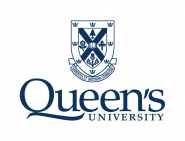Course not offered in 2020/2021 Academic Year
Course Description
Multidisciplinary teams of engineering, commerce, law, and/or science students, as appropriate, act as consultants to industrial and governmental clients. Students are provided with a “real life” experience in the context of a supervised industrial project, whereby they employ the conceptual knowledge gained through conventional university courses along with creative problem solving in order to successfully complete a project for their industrial partner. This experiential learning opportunity provides tremendous value to undergraduates who leave the program with skills that distinguish them from their peers. TEAM is one of the sole programs in Canada which provides students with a one-of-a-kind industrial experience where they engage, advise, and learn from their client while gaining technical and business experience outside of the classroom.
The diversity of the project offerings is critical to the success in TEAM. As TEAM is not a senior design course, nor a research project or term paper, nor a thesis course, it is not intended to teach a specific engineering or business curriculum. The work student groups do is entirely predicated on the needs of the industry partner, and may or may not involve concepts from previous course work. Projects can typically be placed into one of the following categories:
- Process Improvement (Heat Integration, Optimization, Modelling & Analysis, etc.)
- Feasibility & Design (New Process/Product Proposals, Alternative Production Methods, Batch vs Continuous, etc.)
- Business Strategy/Marketing (Economic Modelling & Analysis, Market & Industry Analysis, Business Case Development, etc.)
- Environmental Considerations (Sustainable Design, Chemical Reduction Strategies, Inherent Safety, etc.)
- Blue-sky (Projects which involve a vague or unknown idea/concept)
Projects serve a variety of industries such as: Oil & Gas, Food & Beverage, Mining & Metals, Energy (non-renewable and alternatives), Manufacturing, Industrial Chemicals, Biotechnology & Environmental, Government, Non-Profit, Charity, and Automotive. Projects are selected based upon the prevailing trends in industry. Past project clients include: Shell, Ontario Power Generation, ENCANA, 3M, BASF, RBC, Fluor Canada, MEG Energy, and Utilities Kingston.
Teams regularly interact with clients at both a technical and a management level, and are also assigned an industrial project mentor. This framework, along with the multi-disciplinary nature of project teams, exposes students to a working environment which they will likely encounter upon graduation, that is one which requires collaboration across numerous fields. Assessment in TEAM is structured much like a real job whereby continuous feedback and support is provided by the groups mentors, with the expectation that the group address any deficiencies identified. The course concludes with a comprehensive report and presentation to the client, typically done in the client’s corporate offices.
Owing to the variety of project topics, the specific skills and knowledge each group will acquire over the duration of the course will differ. However, all groups will leave the course with fundamental training in project management, specifically project planning, which is supported by a lecture series from the course instructor and by guest speakers from industry experts.
Overall, TEAM provides students with a simulated experience of working in a consulting career while finishing their final year of undergraduate study. Visit team.appsci.queensu.ca for more information.
Prerequisites
Permission of the instructor

